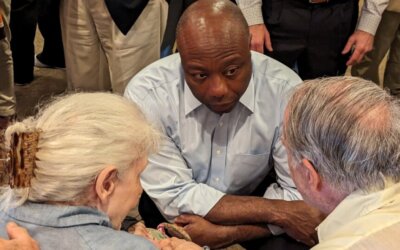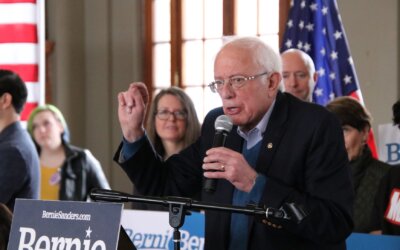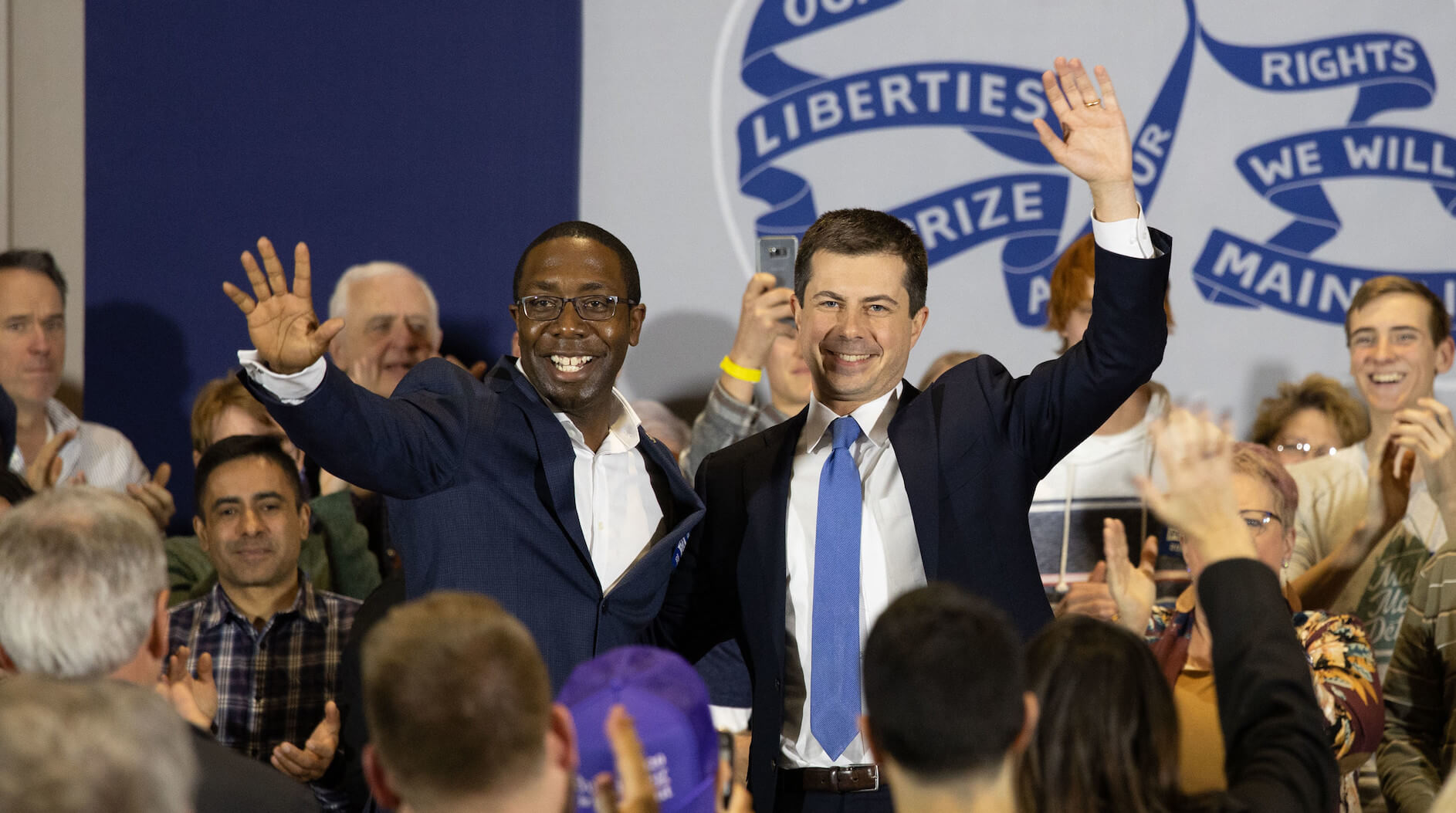
Photo via campaign
Guest op-ed from Mayor Quentin Hart of Waterloo, Iowa.
Last July, I walked along the Fourth Street Bridge overlooking the Cedar River, alongside South Bend Mayor Buttigieg. It was the same place I came the night of December 1, 2015, when I learned the people of Waterloo had elected me the first Black mayor of our city.
As I showed Mayor Pete around Waterloo, we discussed the parallels between what you could call a tale of two cities.
Founded within a few years of each other after the Civil War, both Waterloo and South Bend are river cities that grew into diverse, industrial communities. In the 1960s, the collapse of the Studebaker auto company devastated South Bend. In the 1980s and ‘90s, the loss of Rath Packing Co., Construction Machinery Corporation and Chamberlain Manufacturing—and the downsizing of John Deere—similarly destabilized what I had always known as Factory City, USA.
[inline-ad id=”0″]
Here in Waterloo, we have worked hard to rebuild and shape Waterloo for the future. Once the site of Iowa’s largest racial uprising, our city is now the most diverse city [per capita] in the state—17 percent African-American with growing Latino, Bosnian, Congolese, and Burmese populations.
The city is coming together as one Waterloo.
We’re seeing a riverfront renaissance, a revitalized downtown, and new businesses. Last year, Waterloo was named the ninth best mini-metro city in the country for job opportunities and the Iowa Small Business Association’s “small business community of the year.” Former Iowa Governor Terry Branstad called us Iowa’s “Comeback City.”
[inline-ad id=”1″]
When Pete was elected mayor in 2011, a national magazine had just labeled the community he’d grown up in one of America’s “dying cities.” Pete brought his community together to transform their city for the 21st century. We’re working to do the same in Waterloo.
Under his leadership, household income rose by nearly a third, poverty fell by a third, and unemployment was cut in half—including a nearly 70 percent decline in Black unemployment. The city brought nearly $400 million in private investment to downtown, invested in infrastructure like smart sewers, and established a small business incubator in a historically Black neighborhood. There’s no question that real challenges remain, but Pete has rightly declared that “South Bend is back.”
[inline-ad id=”2″]
Now, Pete is running to bring the same transformative approach he brought to his city to our country—and I’m proud to stand alongside him in that effort.
As our nation moves forward, we cannot continue to ignore communities like ours. I know Pete won’t forget places like Waterloo because he comes from one.
As a mayor himself, Pete appreciates local leaders’ innovative approaches to major challenges. And he knows how much more we could accomplish if the federal government empowered cities, which is why all of his policies—from a $1 trillion investment in infrastructure to his plan to combat climate change and his policies to end our nation’s opioid epidemic—ensure that cities and towns have the resources and flexibility to develop and implement their own strategies.
[inline-ad id=”3″]
It’s clear, for example, how much Pete’s ambitious Douglass Plan would transform our community.
I think of a local Black entrepreneur like Rodney Anderson, who is working to fund a grocery store in a food desert. Another $500,000 could launch his business, which would create over 75 new jobs and bring economic activity to a neglected area.
The Douglass Plan would triple the number of entrepreneurs from underserved areas—particularly people of color—within a decade, and create a 10 billion dollar federal fund for entrepreneurs of color. That would mean a lot more Rodney Andersons, and a lot more communities lifted up.
[inline-ad id=”4″]
Our city has also been identifying blighted housing—especially on the East Side—and we’d love to provide them to residents that have been excluded from homeownership on the condition that they fix them up. Under the 21st Century Homestead Act that Pete has proposed as part of the Douglass Plan, communities like Waterloo would finally have the resources to do that.
I believe that Pete not only has the policies to strengthen our communities, but also the character to lead our divided nation. He has a unique ability to listen to and communicate across differences of race or ideology. When he came out in his socially-conservative community, he was reelected with 80 percent of the vote.
[inline-ad id=”5″]
A few months after that first visit, Pete returned to Waterloo. With that Fourth Street Bridge in the background, I introduced him in front of 600 Iowans. It was cold and pouring rain, but spirits were high. That night the people of Waterloo saw what I saw—a president who will bridge our divides and empower all of our communities to build a better future.
by Waterloo Mayor Quentin Hart
Posted 1/23/20
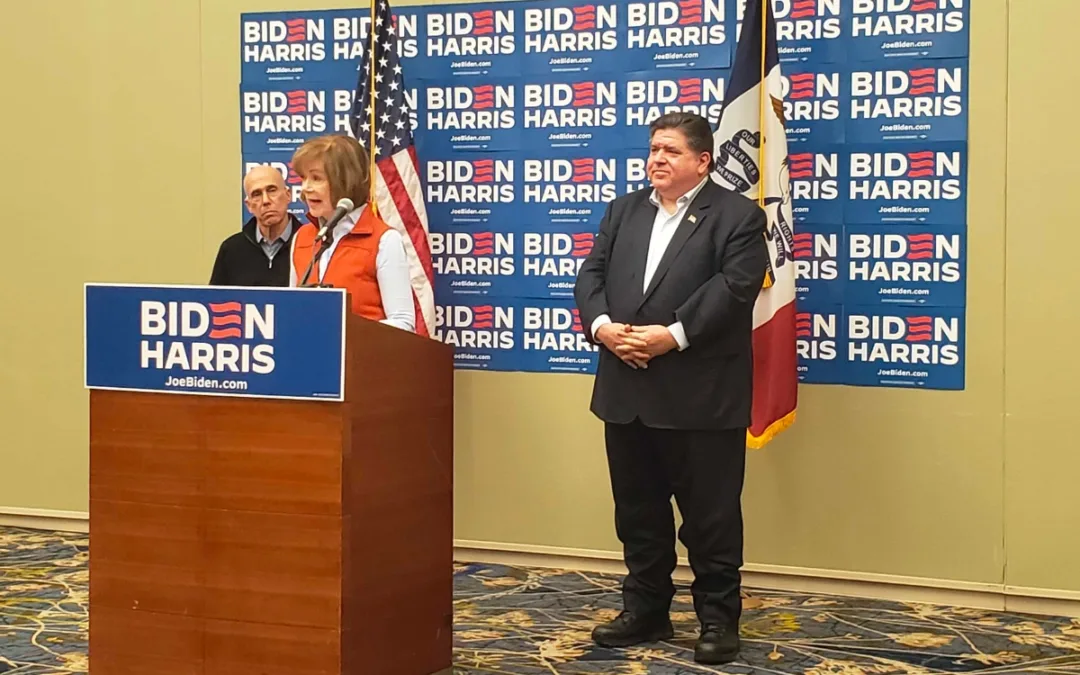
Original, heels or boots: Pritzker says leading Republicans are all MAGA
Illinois Gov. JB Pritzker said all three leading candidates in the Iowa GOP caucus—Donald Trump, Nikki Haley, and Ron DeSantis—represent the same...
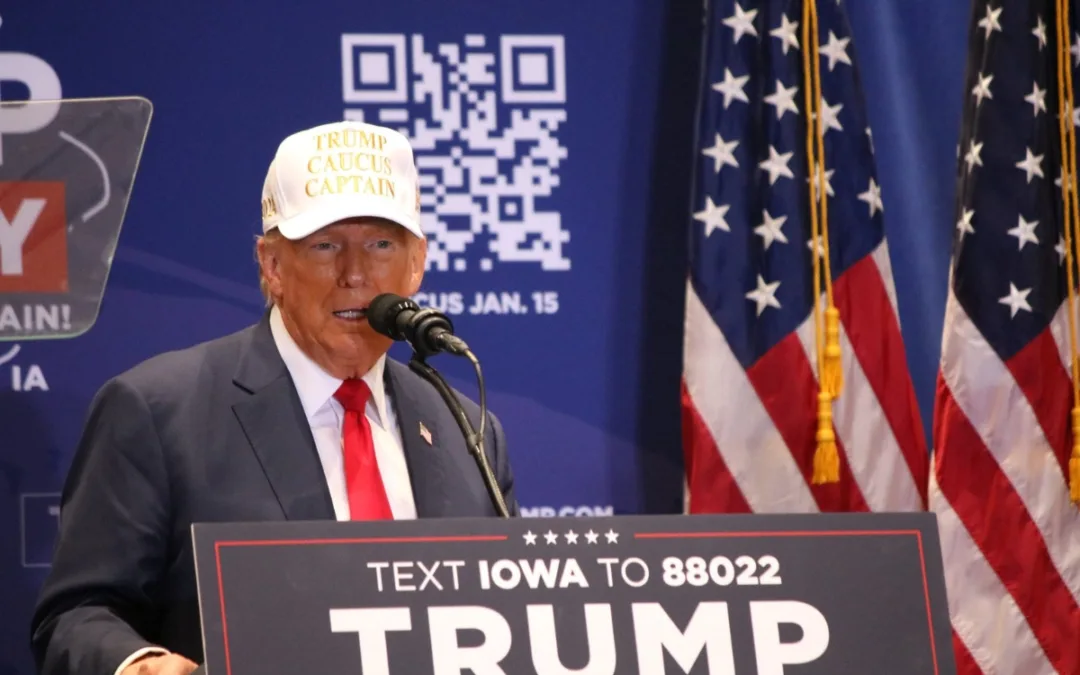
Trump tells supporters it is worth dying to caucus for him
Former President Donald Trump continues to encourage his massive base to turn out in droves for him during Monday’s Republican caucus and told an...

Climate change protesters disrupt Ron DeSantis event
Climate protesters disrupted a Gov. Ron DeSantis campaign event in Ames on Thursday night. Three protesters were escorted out of the room at...

Evangelical leaders predict huge caucus turnout, downplay endorsements
Iowa caucus candidates have racked up big-name endorsements—including a notable last-minute flip flop—but one evangelical leader said none of that...
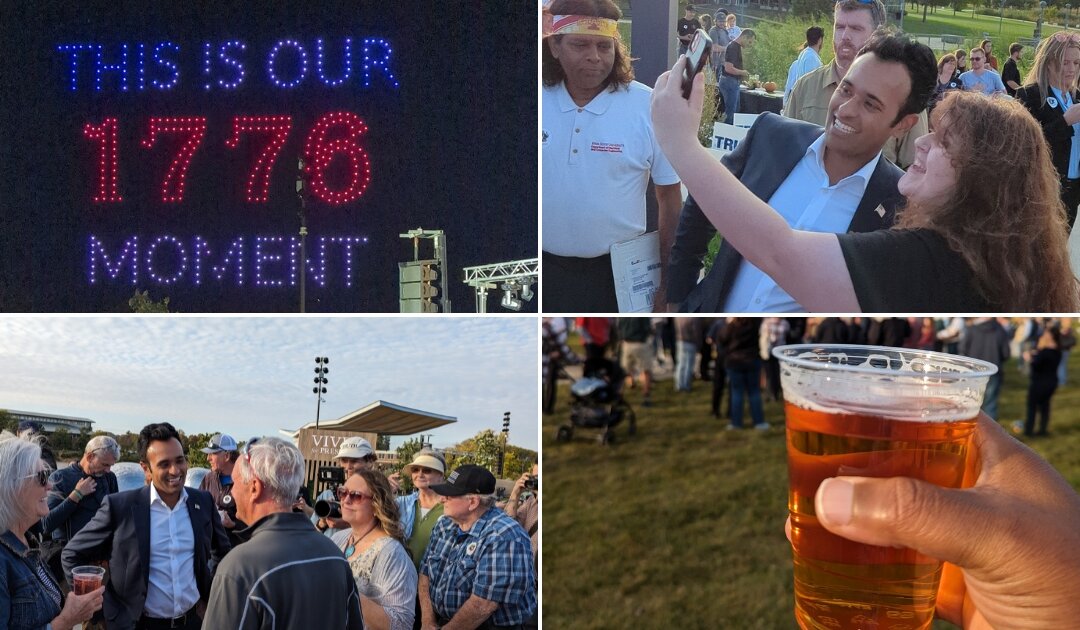
We went to Vivek Ramaswamy’s ‘Vektoberfest.’ Here’s what we saw
As I sat on a park bench eating a bacon-grilled cheese sandwich, drinking an Exile Ruthie straight from the tap, and chit-chatting with a few folks,...
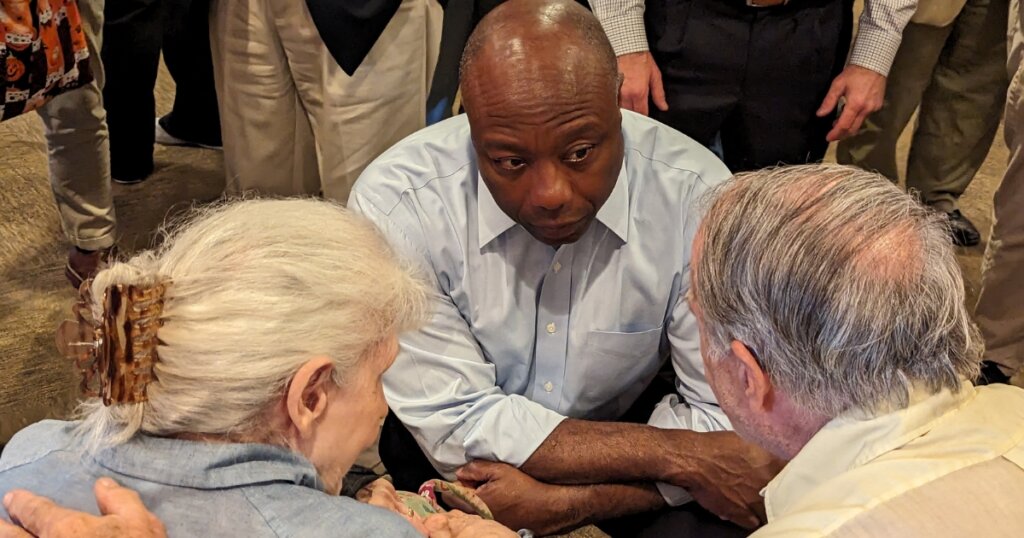
Tim Scott says kids need more exposure to conservatism
While many Republicans across the country have spent the last few years arguing that public schools are being used to indoctrinate kids into leftist...


